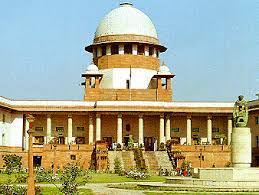Whereby the Company Appeal (AT) (Insolvency) No.930 of 2021 filed by the appellant was dismissed upholding the judgment and order dated 22.09.2021, passed by the Adjudicating Authority, admitting the application under Section 7 of the IBC after condoning the delay. (Para 1)
The Leave and License Agreements in favour of the appellant were duly acknowledged, reserved, and protected under the sale deed. (Para 2.2)
The appellant issued notices for the refund of Security Deposit under the Leave and License agreement. However, as the said amount was never paid, the appellant filed eight summary suits before the Bombay High Court for refund of the Security Deposit, along with interest, during the period from 14.12.2012 to 24.12.2013. (Para 2.4)
Respondent No.2 filed a Company Petition No.1382/MB/2021 under Section 7 IBC against the Corporate Debtor on 22.01.2020 without intimating or making the appellant a party to the said proceedings. Application under Section 5 of the Limitation Act was also filed along with the petition for condoning delay of 1392 days. Later on, respondent No.2 filed an additional affidavit stating that the delay was only of 662 days in view of the acknowledgement in the Balance Sheet of the Corporate Debtor for the financial year ending 31.03.2015. (Para 2.11)
On 22.09.2021, the Adjudicating Authority condoned the delay of 662 days and passed an order of admission and appointment of Interim Resolution Professional (IRP). (Para 2.12)
The appellant, aggrieved by the order of admission dated 22.09.2021, preferred an appeal before the NCLAT under Section 61 of IBC which was registered as Company Appeal (AT) (Ins.) No.930 of 2021. By the impugned order dated 04.01.2022, NCLAT dismissed the said Company Appeal, giving rise to the present Civil Appeal. (Para 2.15)
The change in the number of days for which delay had been caused from 1392 to 662 days by the Respondent No.2 was based upon the Balance Sheet for the Financial year ending 31.03.2015, wherein the debt of Respondent No.2 was acknowledged in the Balance Sheet of the Corporate Debtor. (Para 4.1)
Taking the last date of OTS proposal dated 01.01.2018 acknowledging the debt, the limitation for initiating Insolvency proceedings would run up to 31.12.2020. (Para 4.5)
The petition under Section 7 IBC having been filed on 22.01.2020, which was well within time. (Para 4.5)
There being repeated acknowledgments, not only by way of the debt being reflected in the balance sheet, but also repeated proposal for one-time settlement by the Corporate Debtor, which extended the limitation, Respondent No.2 would be entitled to the benefit of Section 18 of the Limitation Act. (Para 7(n))
The NCLT as also the NCLAT rightly rejected the objection taken by the appellant regarding the petition being time-barred and further rightly proceeded to admit the petition under Section 7 of the IBC by initiating the CIRP. The appeal, being devoid of merits is liable to be dismissed. (Para 7(o))
Section 5 of the Limitation Act provides for an extension for the prescribed period in certain cases where sufficient cause for not preferring the appeal or where the application could not be made within the prescribed time. (Para 10)
Section 18 of the Limitation Act provides that where acknowledgment in writing of the liability is made by a party against whom any right is claimed, a fresh period of limitation shall be computed from the time when the acknowledgment is so signed. (Para 11)
The question in the present case is primarily whether Respondent No.2 would be entitled to the benefit of Section 18 of the Limitation Act and whether Section 5 of the Limitation Act thereof would also be applicable. Although Section 14 of the Limitation Act has also been referred to, but in our opinion, Section 14 will have no application inasmuch as the proceedings under the SARFAESI Act before the DRT cannot be said to be before a Court or Tribunal having no jurisdiction. Respondent No.2, being a Secured Creditor, would definitely have a right to invoke the power under the SARFAESI Act and the said proceedings cannot be said to be without jurisdiction. Therefore, no benefit under Section 14 would be admissible to Respondent No.2 in the present case. (Para 12)
The case laws relied upon on behalf of the appellant are on three points as already noted above. The same are briefly discussed hereunder:
(a) First point on which case laws have been referred to is that a time barred application cannot be entertained under Section 7 IBC. The same would not be relevant or of any help to the appellant as it has already been held that the application of Respondent No.2 would be entitled to benefit of Sections 5 and 18 of the Limitation Act and, therefore, was within time.
(b) The second point on which case laws have been referred to was that no benefit could be claimed under Section 14 of the Limitation Act. These case laws are also not of any relevance as it has been held above that no benefit could be claimed by Respondent No.2 under the said provision.
(c) The third point on which case law is relied upon is that for benefit under Section 18 of the Limitation Act, the acknowledgment should be made within expiry of the limitation provided under law. On this point it has been factually found that taking the date of acknowledgment of debt in Balance Sheet and the three OTS proposals the same were within the limitation under law or the extended limitation due to acknowledgments. Thus the case laws relied upon would have no relevance in the facts of the present case. (Para 27)
SUPREME COURT OF INDIA
2023 STPL(Web) 264 SC
[2023 INSC 820]
Axis Bank Limited Vs. Naren Sheth & Anr.
Civil Appeal No. 2085 of 2022-Decided on 12-9-2023
https://stpllaw.in/wp-content/uploads/2023/09/2023-STPLWeb-264-SC.pdf







